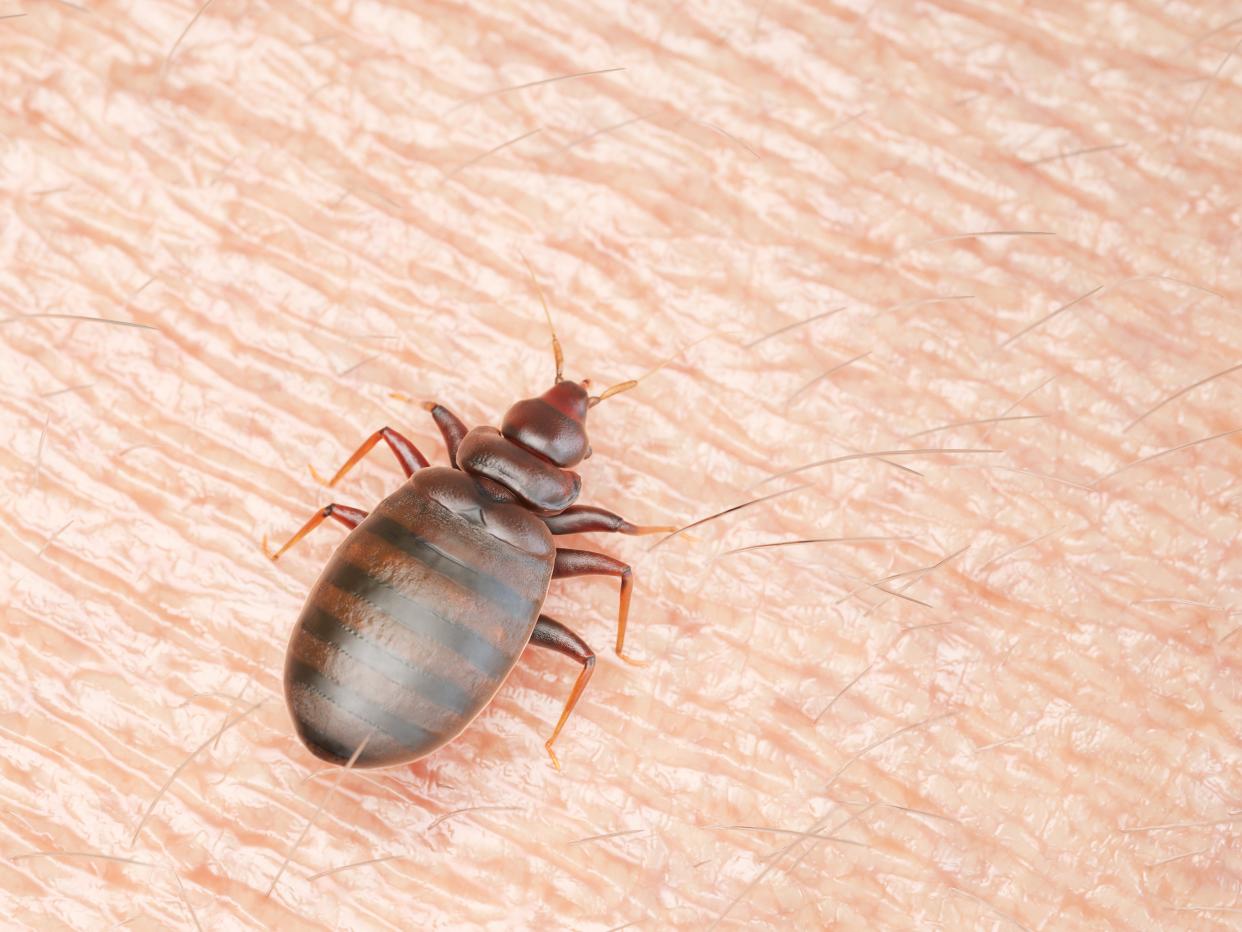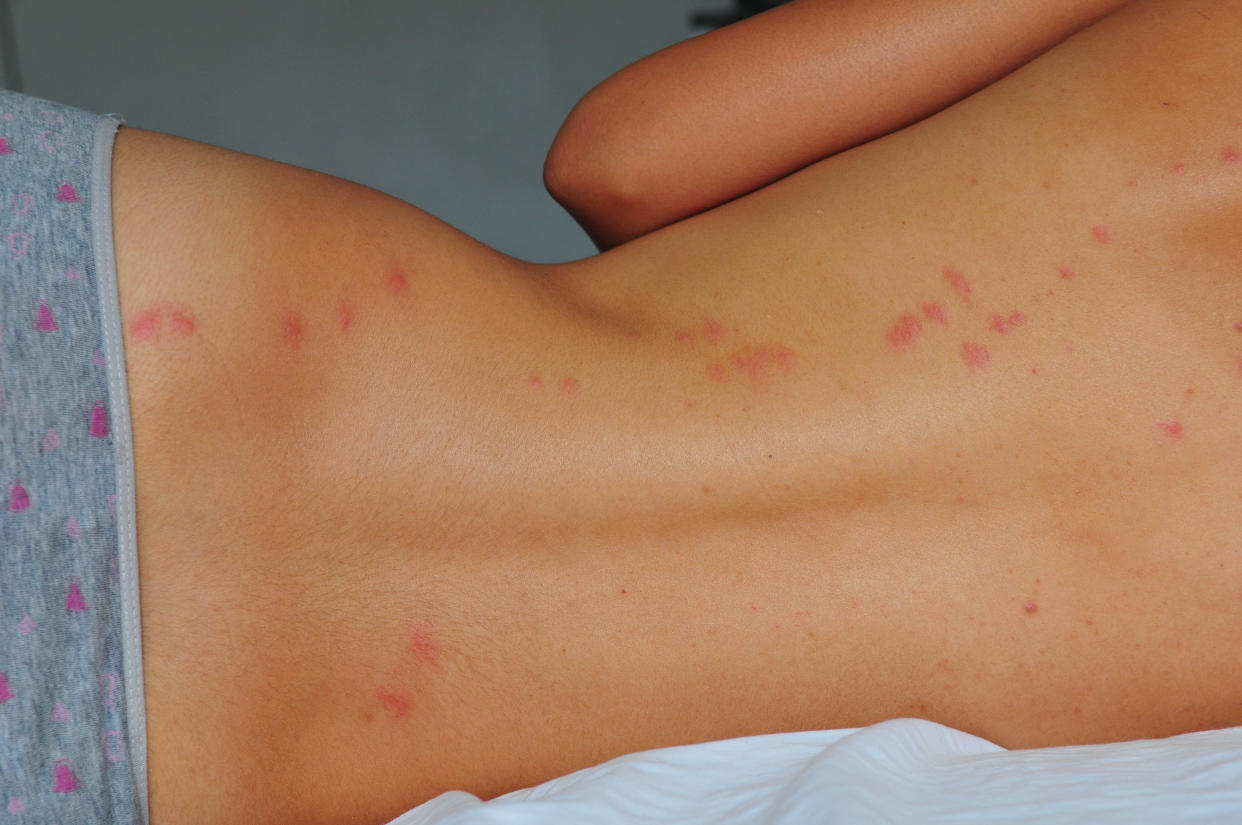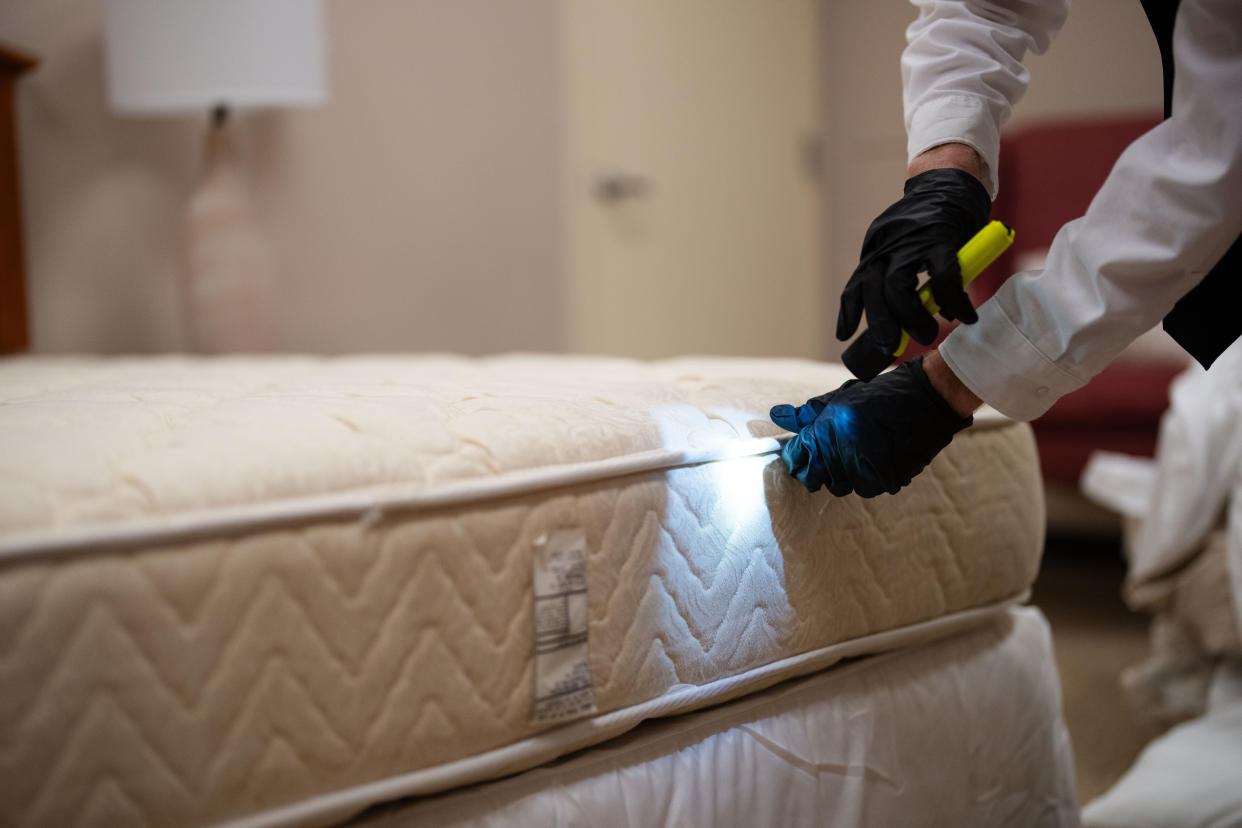Bed bugs: Expert reveals tell-tale sign to know if you’ve been bitten

Paris is in the grip of a bed bug infestation, with fears that the insects are already en route to the UK.
According to reports, bed bugs have not only been spotted in homes, but in public areas like cinemas, restaurants, hotels and hospitals as well as public transport.
Experts say the French capital always sees a spike in bed bugs in late summer, but numbers are increasing every year.
The deputy mayor of Paris, Emmanuel Gregoire, has branded the situation a "public health problem" and called on France's Prime Minister to act.
Increased travel has been to blame, leading to speculation that the UK could see a similar problem - if it hasn't happened already.
Everything you need to know about bed bugs: Read more
The Paris infestation of bed bugs could be coming to the UK – here’s what you need to do (Telegraph)
The 1 Thing To Fight Bed Bugs Is Probably Already In Your Pantry (HuffPost)
The 1 Smell That Signals Bed Bugs Are In Your Home (HuffPost)
'How to spot if you've been bitten'
While the thought of bed bugs makes most people's skin crawl, as far as scientists know, they do not carry any human disease and their bite is painless but can leave an itchy red mark, said Prof Robert Smith, Professor Emeritus, University of Huddersfield.
He said: "Bites often show up as a straight row of three or four – I once woke up with a line of raised bites across my chest in a hotel in Ethiopia, with no ill effects. (I found this experience quite interesting although I can see that others might not.)"
He said reports of bedbugs have been increasing for many years, both in the UK and many other countries, probably mainly due to their developing resistance to insecticides.
"The five immature stages (nymphs) need a blood meal in order to develop to the next stage and adult bedbugs can live up to a year," added Prof Smith.

How to avoid bed bugs when travelling
Bedbugs mostly feed at night and "hang out in cracks and crevices" during the day, said Prof Smith.
"I no longer use drawers in hotels to avoid picking up bedbugs as they can quite easily hitch a ride in luggage," he added.
"Hence, they can travel between countries in luggage and are widespread. So, I wouldn’t worry about them, but would advise avoiding unpacking clothes as far as possible in hotels.
"Some people even advise storing your suitcase in the bathtub, though I don’t go that far!"
'Good hitchhikers'
The spotlight may be on Paris, but bed bugs are found globally so are already in the UK, said Prof James Logan, Professor of Medical Entomology and Director of Arctech Innovation, London School of Hygiene & Tropical Medicine (LSHTM).
"Bed bugs are good hitchhikers and could easily be brought from Paris to the UK, but could just as easily go from the UK to Paris!," he said.
"It is unlikely that Paris is significantly worse than other places, although they may be unlucky right now with a bit of a bed bug boom."
Prof Logan said experts need to be able to monitor for bed bugs quicker so they can be dealt with quickly before infestations get out of control, adding: "There are traps that lure bed bugs effectively that can do this job – e.g. https://www.bugscents.com/ (developed by scientists at LSHTM)".

How to prevent bed bugs at home
According to pest company Rentokil, there are a number of simple steps you can take to reduce your chances of an outbreak of bed bugs at home.
They include:-
Washing and drying clothes at the highest possible temperatures
Eliminating clutter in your house to give bed bugs fewer places to hide
Avoid spreading bed bugs to your friends and family by not taking any clothes, suitcases or furniture to their homes
Tidying all areas of your bedroom, especially the floor around/underneath your bed and bed-side cabinets.
Vacuuming can greatly reduce the size of the bed bug population, but only when they’re clearly visible. It cannot guarantee total elimination. (Empty and clean the vacuum to avoid transferring eggs to other rooms.)
DIY products can help eliminate some bed bugs but shouldn’t be relied on to get rid of the problem completely
What else do you need to know?
According to Rentokil, bed bugs can easily move from house to house through wall or floor cavities and can spread quickly - which means infestations need to be treated sooner rather than later.
Some people think sunlight can kill bed bugs, the company added.
But it said: "Heat does kill them but it needs to be quite high (around 50 degrees) and over a sustained period – so it’s very unlikely with UK weather!"


